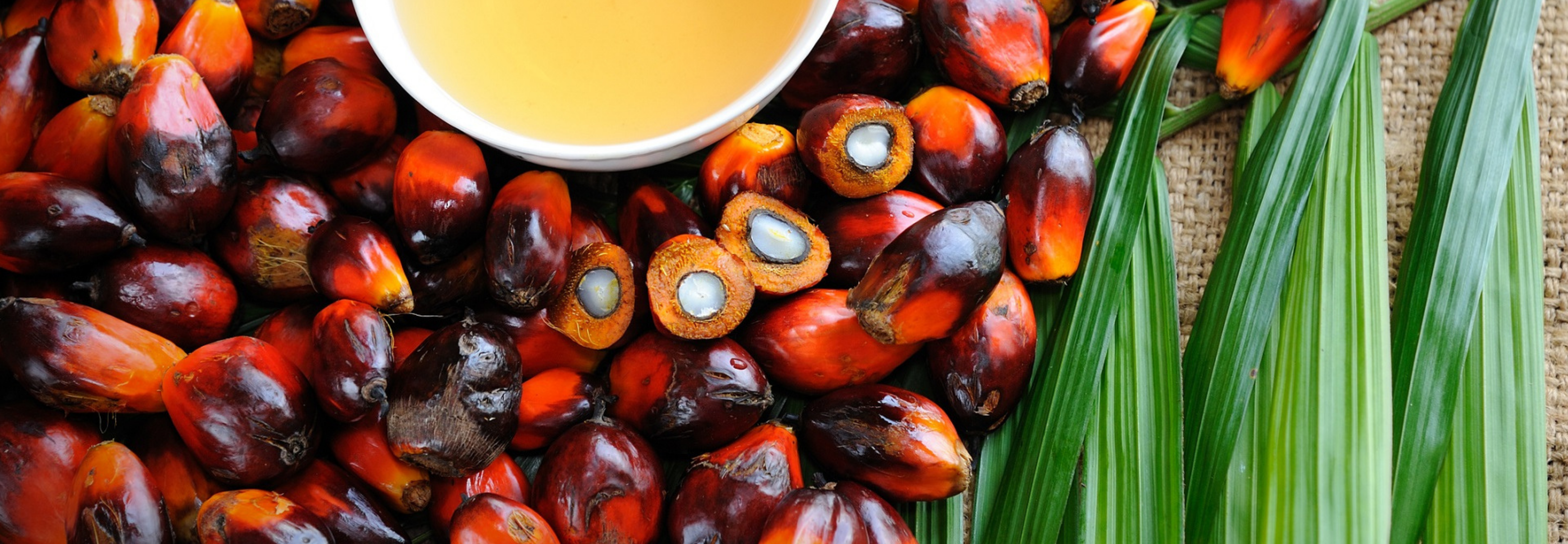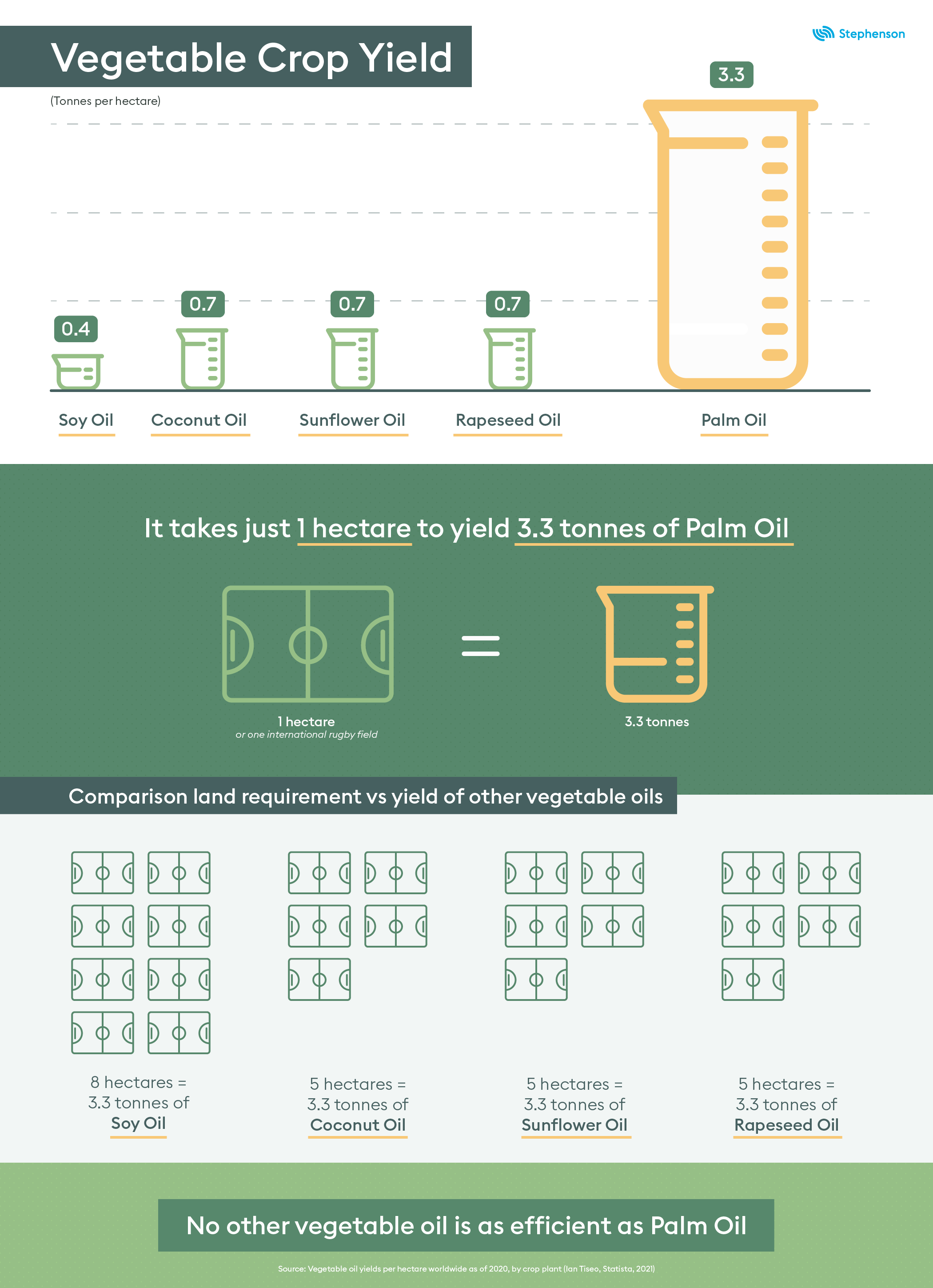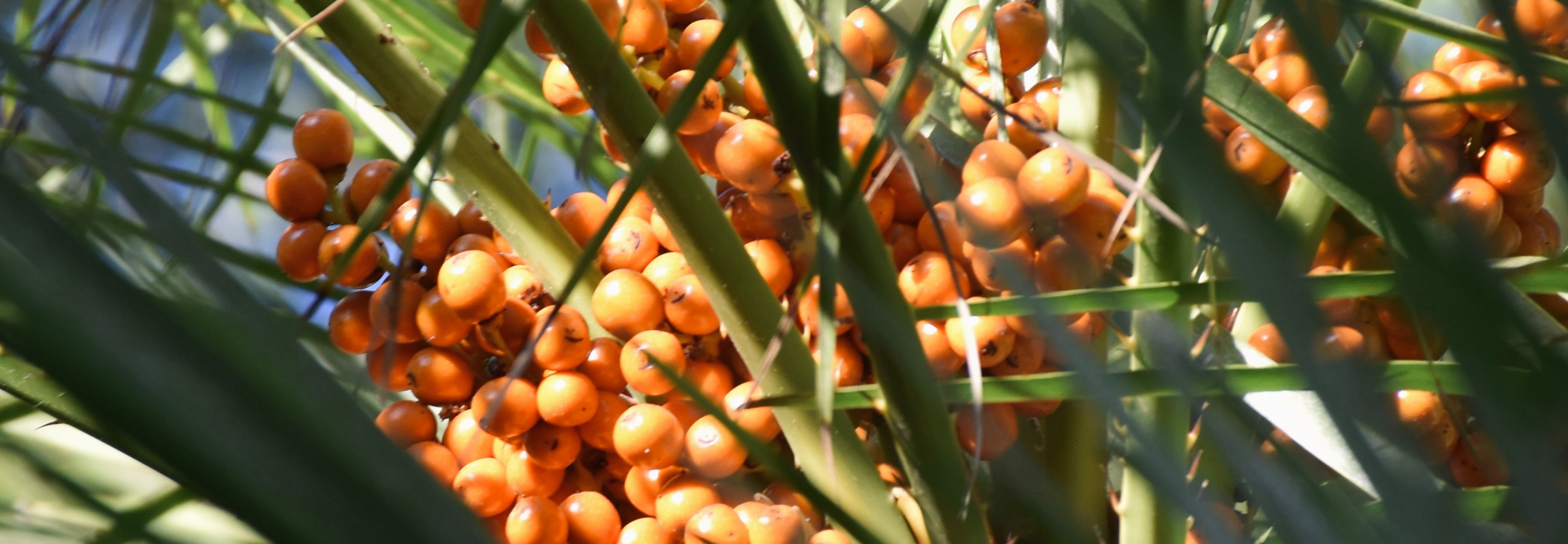If we stopped using Palm Oil and switched to Rapeseed instead, how much more land would we need to produce the same amount of vegetable oil?
400%
The oil palm tree is four times more land efficient than alternatives, like rapeseed. In fact, you'd need approximately 280 million more hectares to produce the same amount of vegetable oil using rapeseed. Source - World Resources Institute
Palm oil is one of the most commonly used raw materials in food and personal care yet despite its popularity in products, it often carries negative connotations. But why?
As the most efficient crops on the planet, requiring less land than its counterparts, you might think it would carry a better impression. Palm oil in its entirety, how it’s farmed and processed isn’t quite as straightforward as many consumers and brands might think. Unsustainable palm oil carries an assortment of negativity including deforestation, the destruction of habitats, and peat burning.
Sustainably sourced Palm Oil on the other hand has a significantly positive impact, a transparent supply chain, protected forests/habitats, and ensuring local plantations/families retain a living wage.
Why is palm oil so popular?

The oil palm trees mainly grown in Africa during the 1960s were moved to Southeast Asia in the 20th century. Currently, Indonesia and Malaysia are the leading producers of palm oil globally. Palm oil is an extremely versatile oil used in food as a preservative and cosmetic products as a natural emulsifier (foaming agent).
What are the environmental impacts of using alternatives to Palm Oil?
Palm oil is extremely versatile, but compared to other vegetable oils, it is incredibly efficient producing a significantly higher crop yield over small areas of land. This makes Palm Oil an extremely desirable crop for growers as it can create a steady income all year round rather than being seasonal.
What are the benefits of using a crop that has a higher yield?
Palm oil is the highest yielding crop available. As stated by RSPO.org, one hectare planted with oil palm yields about three tonnes of oil on average per year, with the most efficient farms producing more than six tonnes from one hectare. To produce that much oil from rapeseed (canola), sunflower, or soy, up to ten times more land would be required.
Whilst brands and businesses in recent years have moved away from palm oil, they often move the issue elsewhere making the environmental impact significantly worse.

Source - Vegetable oil yields per hectare worldwide as of 2020, by crop plant, Ian Tiseo, Statista, 2021
RSPO Certified Sustainable Palm Oil is the right choice for the future
RSPO represents the leading, independent third-party standard for more sustainable palm oil and palm derived production. RSPO certified palm oil protects the environment as well as local communities who depend on it for their livelihoods, so that palm oil can continue to play a key role in food security, economic development and food supply chains.
In order to reduce deforestation and natural habitat conversions, we should continue to use RSPO certified palm oil in products. RSPO certified products that use palm oil from ‘Segregated’, Identity Preserved or ‘Independent Smallholder Standard’ supply chains offer the greatest assurance of sustainable palm oil.
What can we do about it?
The topic of Palm Oil is complex, challenging and often contentious and whilst there are solutions like RSPO and POIG (Palm Oil Innovation Group e.g. stakeholders as L'Oreal, Ferrero, Danone). We have to keep an open dialogue, acknowledge the complexities of this topic and understand that often the solutions that paint palm oil with such a negative perspective create more devastating outcomes than it may seem.
Therefore, we believe the best thing we can do is to support Certified Sustainable Palm Oil. As we highlighted in this blog post, avoiding the use of palm oil or using alternatives to palm creates a significantly worse outcome.
What can you do?

Photo by Arno Senoner
The solution is not as simple as avoiding palm oil or products that contain palm oil. Palm oil is not a bad oil if responsibly sourced. Here are a few things you can do;
- Does the company you purchase foods and cosmetics from source ingredients responsibly?
- Do they have sustainability policies in place like a palm oil policy for example?
- If they use on pack claims like ‘Palm Free’, what alternative oils or derivatives do they use and what impact does that have on the environment.
- If the products you purchase do contain palm oil, is it responsibly sourced?
Stephenson commits to sustainable palm oil.
Our commitment to purchasing responsibly sourced RSPO certified palm oil and trading with RSPO suppliers ensures that the palm oil we use in our products is sourced sustainably. For more information on our palm oil policy, you can view it here.
Read original article here>>> https://www.stephensonpersonalcare.com/blog/why-palm-oil-the-good-the-bad-and-the-sustainable

